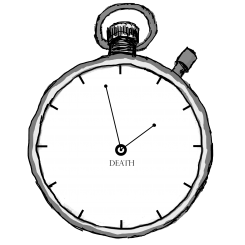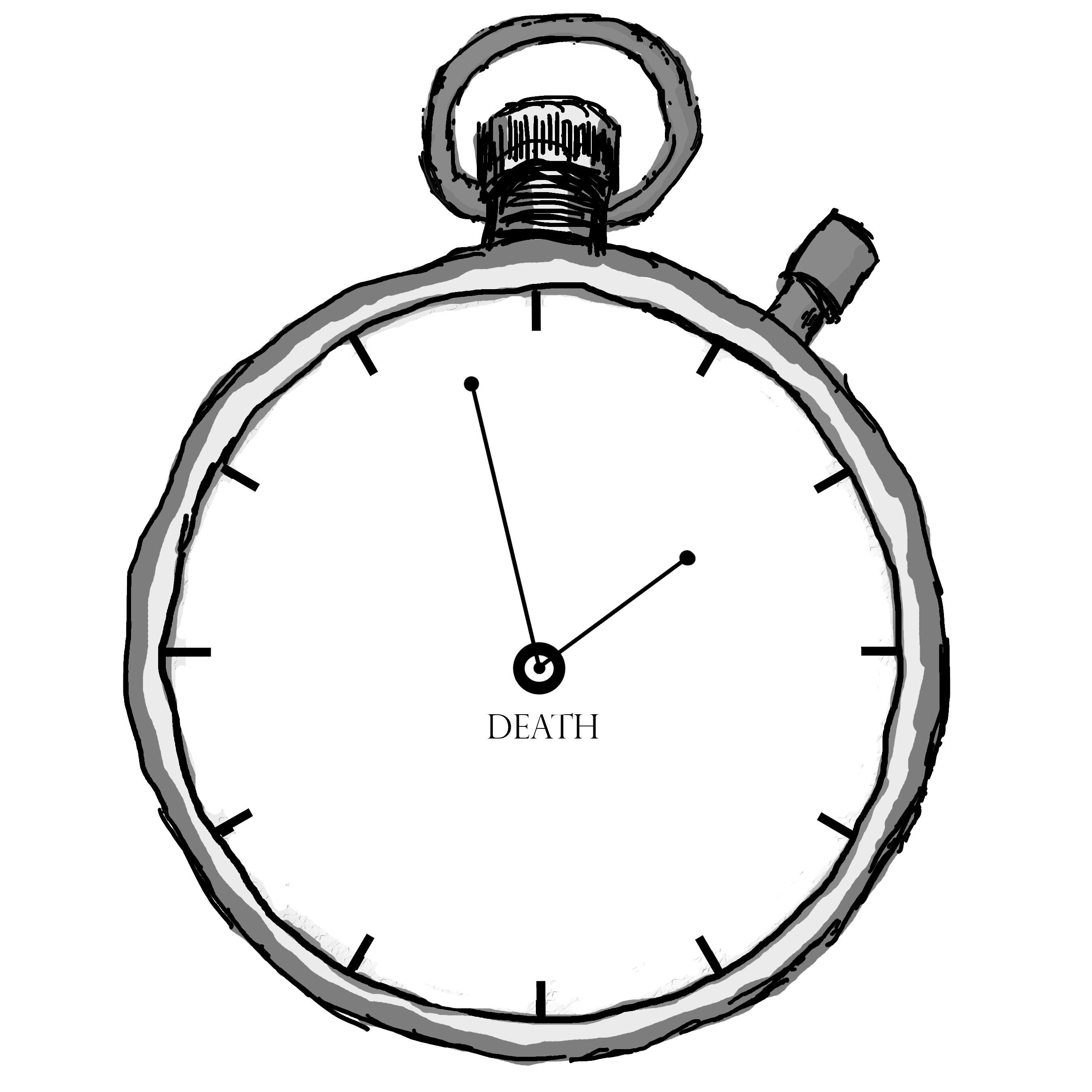Every human will die someday. This resolute fact has fascinated onlookers throughout human existence. Early experiments probing death attempted to measure the weight of the soul as it departed from the body. Although the soul was purported to weigh around one shot, empirical evidence would suggest that it’s better to drink bourbon from the glass than measure dead bodies with it.
Current research into death is more principled. A study co-authored by Dr. Andrew Lim, U of T professor of Neurology at Sunnybrook Hospital, found a gene that is associated with time of death.

KEVIN YU/THE VARSITY
The team found that individuals who possess a slight variation in a region near the period gene die during the day around 11 am, while individuals possessing a different variation in the same region die around 6 pm. In the original study reporting the period gene, flies were found possessing no daily rhythms, shorter or longer daily rhythms; interestingly, period also affected the emergence of the adult fly at birth. In flies, the period gene elicits the expression of the protein PERIOD from particular clock neurons in the middle of the brain near the eyes. The period gene works in concert with other regulatory genes and proteins to control cycles such as locomotor activity (the equivalent to sleep-wake cycles). The period gene is thus pivotal in circadian rhythms.
The study by Lim and colleagues is the first to link a gene variant associated with circadian rhythms with a behaviour, such as time of death, in humans. The researchers performed a candidate gene association study, starting with the genes of interest — clock genes such as period — and then attempt to determine the casual relationship with the behaviours of interest — circadian rhythms.
The study took post-mortem tissue samples from 687 individuals for whom information concerning time of death was available. They then used a technique on the tissue samples called a microarray, which assesses and reveals tiny deviations in genes called single-nucleotide polymorphisms (SNP). When the researchers classified the 687 individuals by what time of day they died, they found a consistent variation (SNP) in the region near period that differentiated people dying in the morning versus people dying in the evening.
The study did not suggest that the variation in period could be used to predict when individuals were going to die; moreover it probably demonstrates an underlying circadian rhythm of that individual, which they identified in the earlier part of their study. “[The variant] doesn’t actually differentiate people dying in the morning vs. the evening [but] is associated with the eventual time of death,” Lim noted via email.
To be specific, one variation in the region near the gene period confers a preference to expire near one time during the day, whereas the other variation produces a preference for a different point during the day.
Research in the science of death has come a long way since measuring the weight of a person’s soul at their deathbed. If it is any consolation, I’ll be drinking my bourbon in the morning and in the evening just in case I possess either gene variant of period, to make sure I get my last shot in before death visits me.


